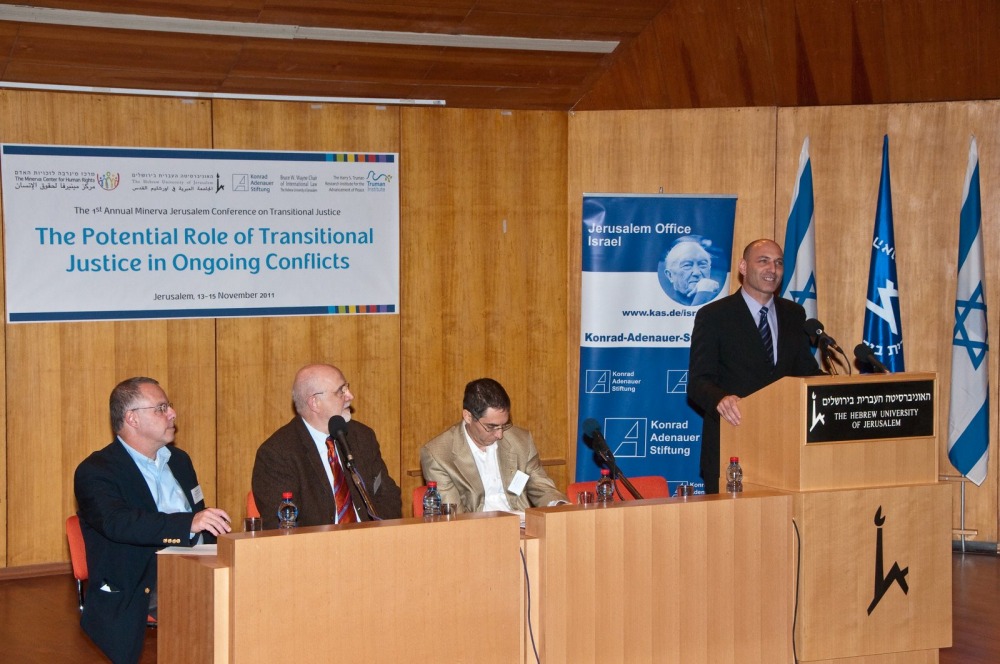The Scripts and Settings of Transitional Justice: Procedure, Protocol and Form (June, 2021)
A recording of the event can be found here:
Day 1:
Day 2:
Day 3:
Transitional Justice and the Crisis of Democracy (September 30-October 1)
The Minerva Centers for Human Rights at both the Hebrew University of Jerusalem and Tel Aviv University hosted a joint 2-day international webinar on transitional justice and the crisis of democracy. The full program can be viewed by clicking here.
Recordings are available for both days of the webinar.
September 30:
October 1:
Following the event, panelists held a follow-up session to continue discussions cut short by time constraints during the webinar.
Flattening the Conflict? COVID-19 and Peacebuilding in Israel/Palestine (June 29)
The Criminalization of Migration in the U.S. and Beyond, Prof. Jennifer Chacón (December 2019)
The Minerva Center for Human Rights was honored to celebrate the establishment of the Bob and Sally Shafton Memorial Distinguished Visiting Scholar Series. The annual series is made possible by a generous gift to the Center from the Levenfeld family of Jerusalem in honor of their parents/grandparents, the late Bob and Sally Shafton of Los Angeles - and will enable the Center to annually host a prominent human rights scholar from the Los Angeles area for teaching, seminars and public lectures at the Hebrew University of Jerusalem.
The inauguration of the Shafton Memorial Series featured a public lecture by the first Shafton Distinguished Visiting Scholar, Prof. Jennifer Chacón of UCLA School of Law, on the criminalization of immigration in the U.S. and beyond. Greetings were given by Jill Shafton-Levenfeld on behalf of the family and by the Dean of the Hebrew University Faculty of law, Prof. Daphna Lewinsohn-Zamir. Opening remarks were presented by retired Israeli Supreme Court Justice Ayala Procaccia, a long-time friend of the family.


For more photos and the lecture program | Watch on Youtube ![]()
(All photos by Bruno Charbit).
Transitional Justice and Global Politics: International and Global Perspectives (November 2018)
The Minerva Center for Human Rights and Fried-Gal Transitional Justice Program at the Hebrew University of Jerusalem’s Faculty of Law, in cooperation with the Embassy of Switzerland in Israel, held an international symposium on the interplay between global politics and transitional justice. The symposium brought together local and international scholars and practitioners engaged in transitional justice initiatives and research for an extremely fruitful day of discussions, mapping and critically evaluating the external political conditions under which transitional justice interventions are considered or attempted in different states. The discussions were chaired by Prof. Yuval Shany, Co-Director of the Transitional Justice Program, and included contributions from His Excellency Jean-Daniel Ruch, Ambassador of Switzerland to Israel.


For more photos and conference program | Watch on Youtube ![]()
(All photos by Bruno Charbit).
And see this article (in French) by Dr. Pierre Hazan following the symposium
The Role of Constitutional Design in the Resolution of Ethno-National Conflicts: Comparative Perspectives (December 2017)
On December 17-18, 2017, the Fried-Gal Transitional Justice Program and the Minerva Center for Human Rights at the Hebrew University of Jerusalem held an international workshop examining three principal case studies of ethno-national conflicts and attempts at resolution - Northern Ireland, Bosnia and Herzegovina, and Cyprus – in which a principal part of the peace agreement (signed or suggested) includes complex power-sharing arrangements. The workshop, bringing together leading international academics in the field, sought to advance new understandings of the role of constitutional design as a tool of transitional justice and to trigger a critical discussion about old and new suggested solutions to the Israeli-Palestinian conflict. Participants included Christopher McCrudden, Ruti Teitel, Brendan O'Leary, Ahmet Sozen, Joseph Marko, Sumantra Bose, Jennifer Todd, Costas Constantinou and many local scholars.
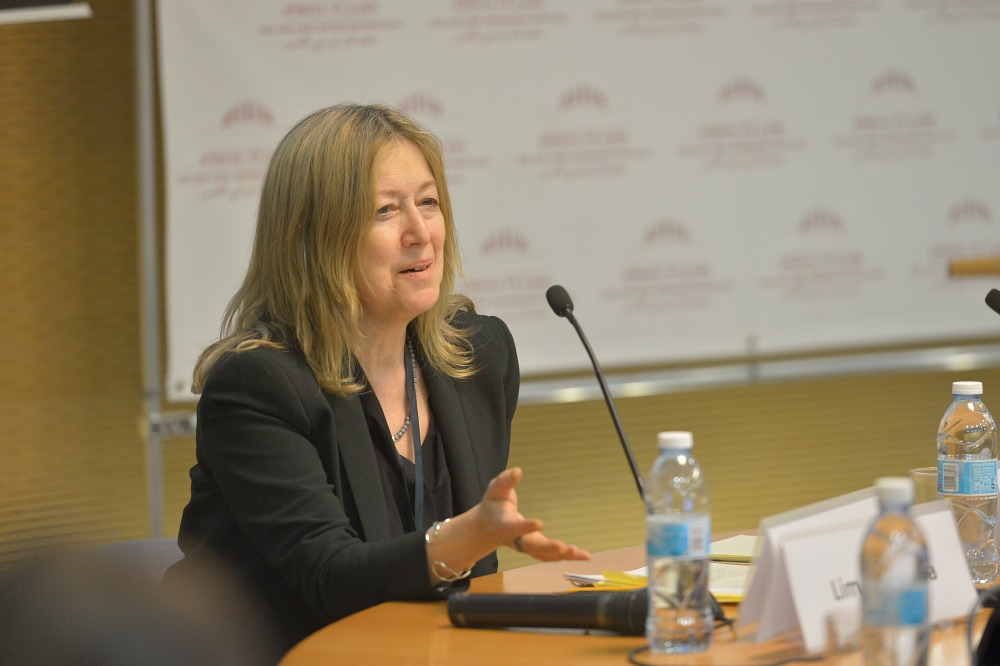
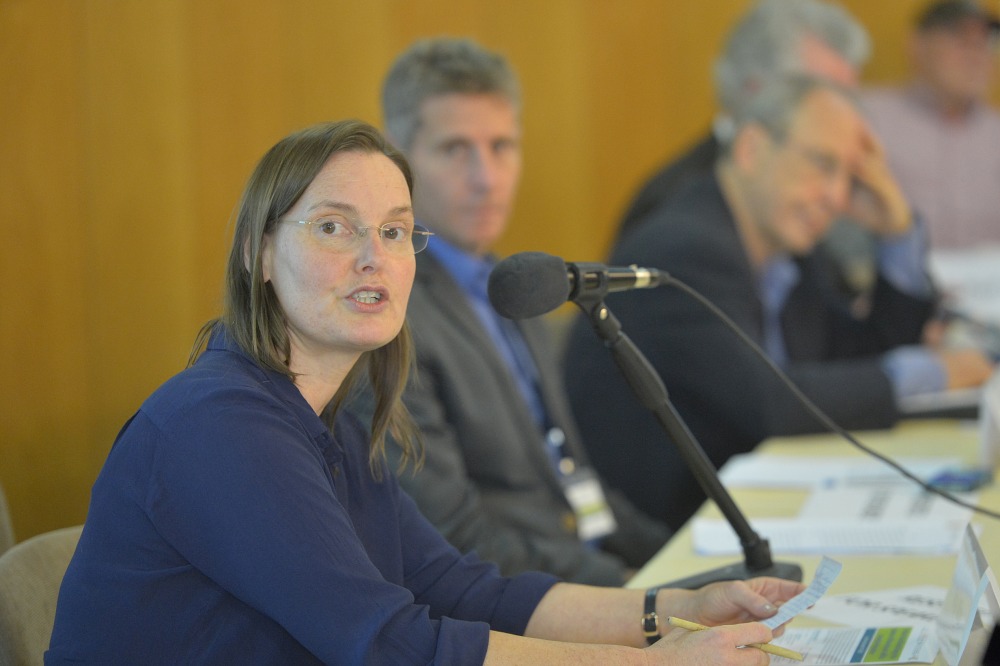


Transitional Justice and Civil Society- Learning from International Experience (May 2014)
On May 26-27, 2014, The Minerva Center for Human Rights at the Hebrew University of Jerusalem held an international conference exploring possible implementations of the theoretical, historical, and comparative insights about to role of civil society in developing transitional justice mechanisms, institutions and concepts to the Israeli-Palestinian conflict. The conference sessions included, in addition to speakers who presented their research, discussants which evaluated the projects presented and discussed their possible implementations to the local conflict.
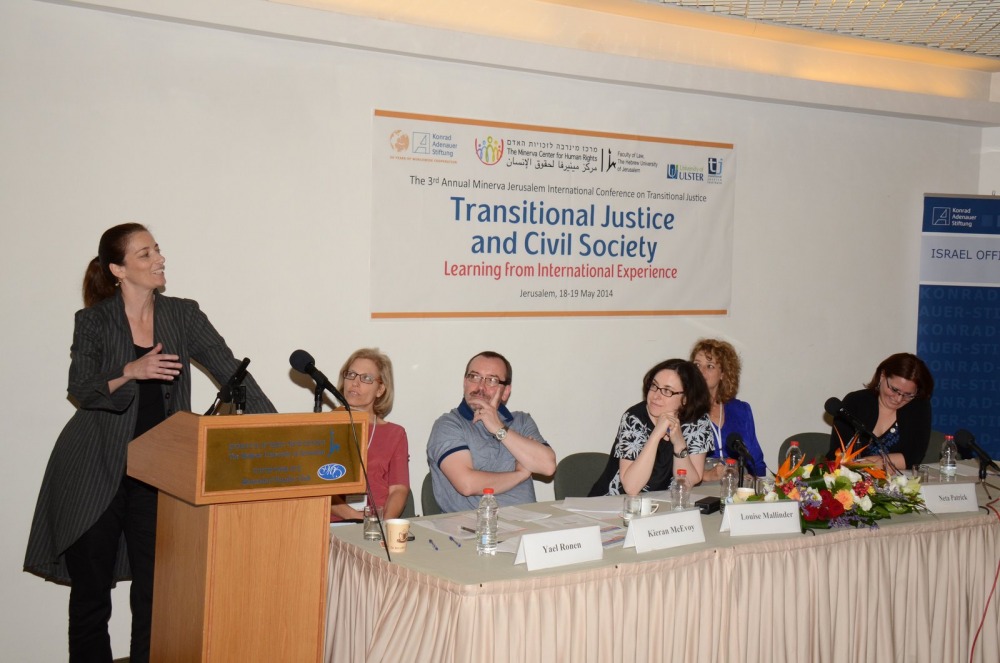
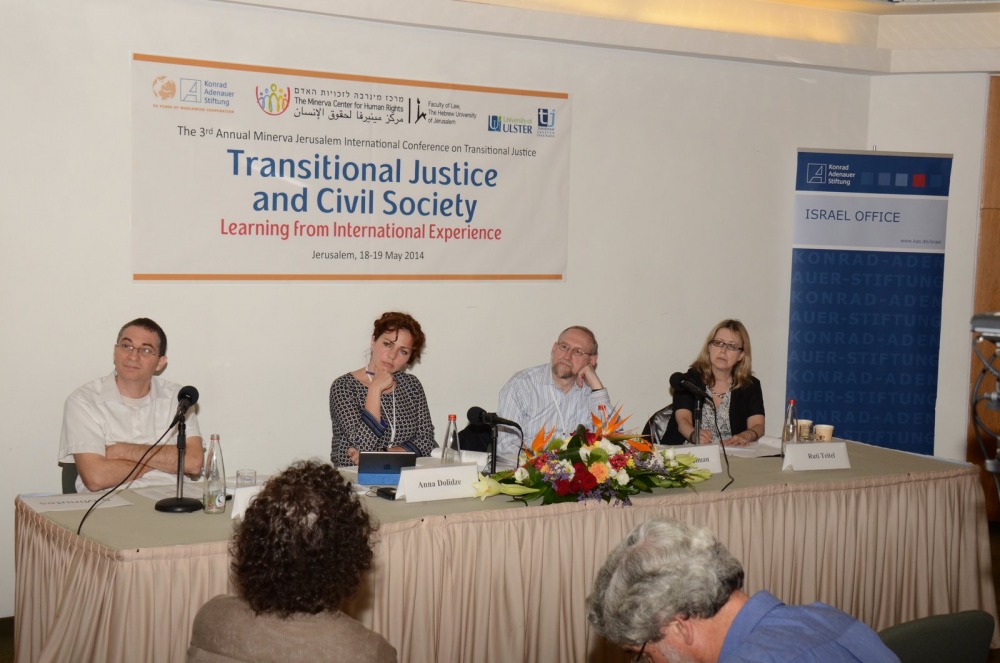

Transition in-to Democracy (October 2012)
On 29-31, October 2012, The Minerva Center for Human Rights at the Hebrew University of Jerusalem held an international conference examining the diverse and complex interactions between transitional justice and democracy. The relationship between the concepts of transitional justice, on one hand, and democracy, on the other, is complex and multifaceted. Much of the seminal literature and discourse on transitional justice focused on what has been called "paradigmatic transitions", i.e., dealing with past abuses by former authoritarian and other illegitimate regimes after a transition to democracy.



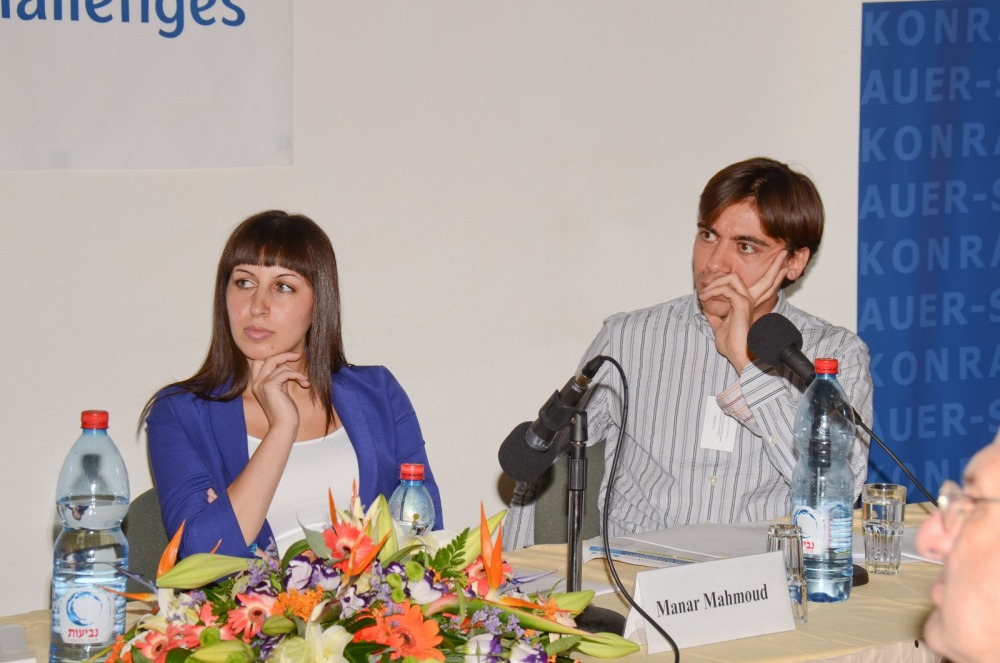

The Potential Role of Transitional Justice in Ongoing Conflicts (November 2011)
On November 13-15, 2011, the Minerva Center for Human Rights' Transitional Justice Program held its first major conference on the role of transitional justice in ongoing conflicts. Transitional justice is most commonly associated with "post-conflict" contexts, where human rights violations are no longer being committed and the conflict has ended (although typically the underlying social and political tensions have not yet been resolved). Arguably, the ideal environment for transitional justice mechanisms to succeed is one in which the guns are silent. An important and relatively underexplored aspect of transitional justice is the role that transitional justice mechanisms can play when the conflict, or situation of pervasive human rights violations, is still active and ongoing. This conference focused on the questions that arise in these scenarios.
